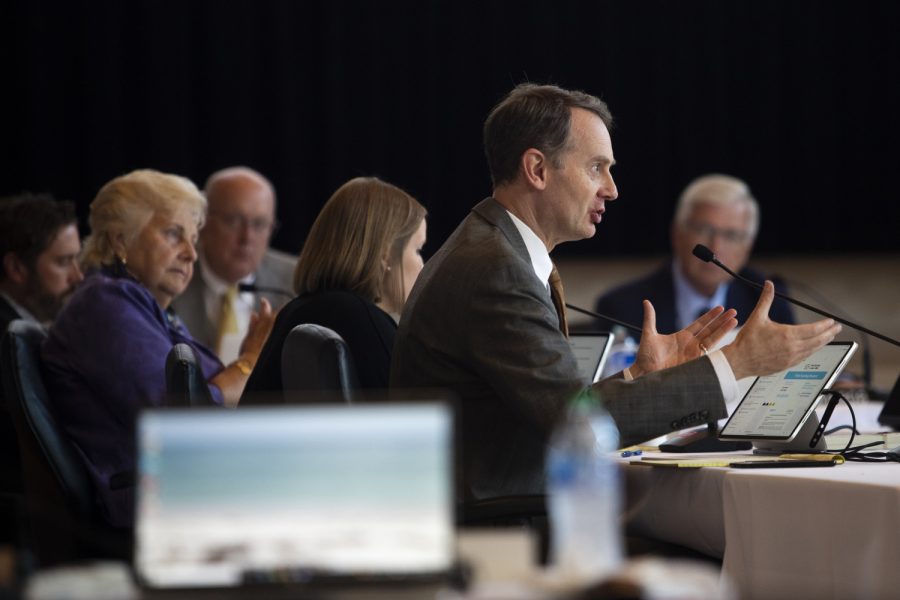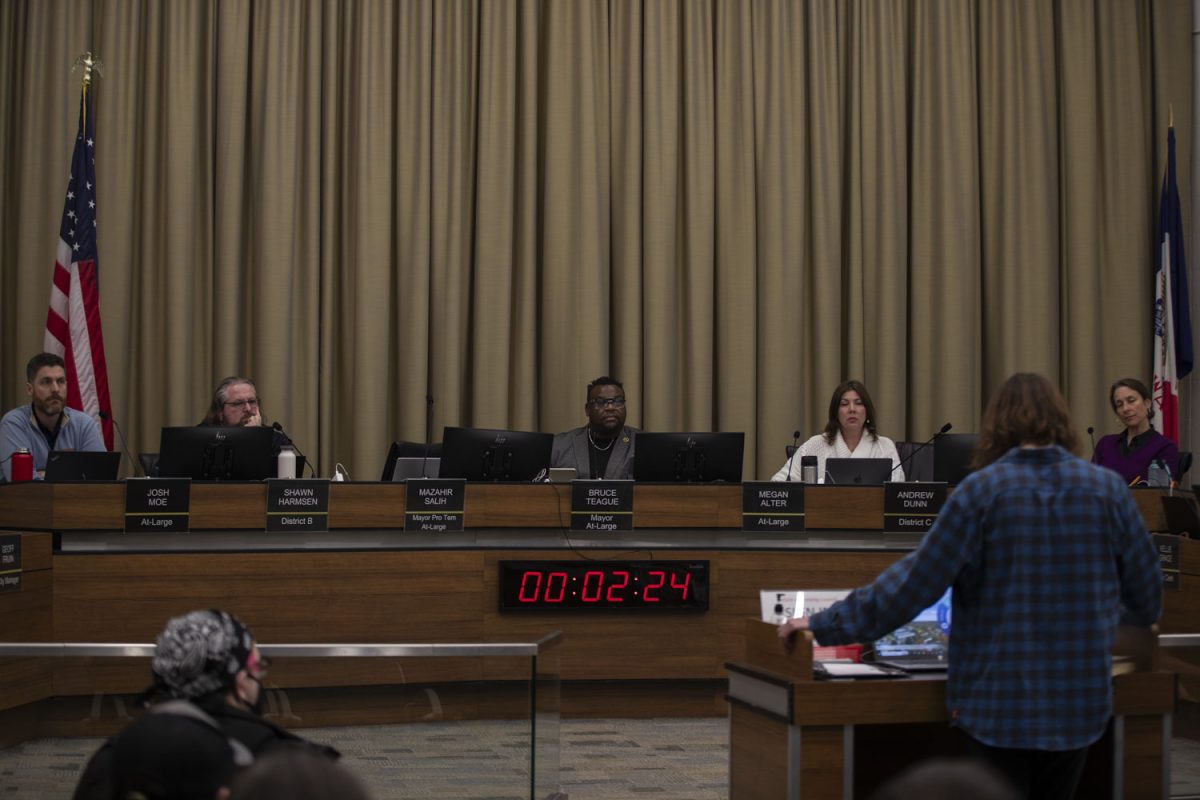Iowa City’s budget may soon be the target of another financial burden.
As wages and pensions continue to increase and state contributions dwindle, Iowa City may have to come up with millions of dollars to pay for the pension of its employees, particularly those in public safety.
City officials are concerned about covering that cost.
"Our concern is, one, we have no control over it," City Councilor Susan Mims said. "It’s getting to be a very high amount, so it would significantly increase our cost for public safety in terms of fire and police."
For fiscal 2012, Iowa City is scheduled to spend $2.2 million on pensions for city employees, a 57 percent increase over the $1.4 million it paid in 2010.
That cost will continue to increase in following years, with a projected cost of pensions reaching $2.6 million in 2013. The spike will saddle the city with another kink to work out of its budget — and recent changes to property-tax laws could reduce the city’s revenue by $3 million in coming years.
Because public-safety employees contribute a fixed rate of 9.1 percent of their salary to the pension fund regardless of cost increases, the city is forced to take on the difference, said Kevin O’Malley, the city finance director. The portion of their pension other city employees pay rises as costs rise.
The state government currently contributes $1.5 million to the pension fund — down from $2 million last year. The state’s contribution is expected to eventually phase out.
When public-safety pension increases, the city alone must pay for it.
"We’re treating employees’ pensions differently," O’Malley said. "On one end, the state’s saying the employees have to pay their fair share for increases, and the other, pension for public safety is saying only the city has to pay an increase for benefits."
Because public-safety officials are fewer in number than other city employees and receive an earlier retirement, this cost is forecast to rise, which would force the city to pay more.
O’Malley said if the economy remains in its current condition, the city could face up to a 62 percent increase on the current $2.2 million pension costs down the road.
This cost will be borne by taxpayers.
O’Malley said property taxes could go up by $14 for every $100,000 to cover the costs.
With the pension system up for review in the next legislative session, Iowa City Fire Chief Andy Rocca said, a secure pension plan is important for prospective employees and should be protected.
"From my perspective, the pension is probably a very powerful recruiting tool," he said. "People who look into a public-safety career look at the package. If it were to erode too much, it may affect the quality of the candidates we see at the entry level."






